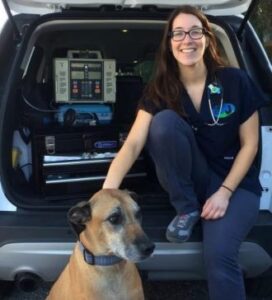
Some believe that every puppy is a blank slate: that there are “no bad dogs, only bad owners.” What one means by a “bad’’ dog is a whole other topic for discussion. However, regardless, I wholeheartedly disagree with the sentiment of this all-too-common phrase.
Over the years, I have known wonderful, astute owners who have done “everything right” with their puppy and are still presented with a difficult behaviour that they need help managing. I have conversely known others who admittedly never attended a puppy class and did not focus on socialization — yet somehow have come to have a wonderful, calm, social companion.
I recently watched the Masterclass by the celebrity trainer Brandon McMillan. And, while I caution against following the latest/trendiest celebrity trainer, I have to admit I was really struck by his introduction. He lists the four things owners need to be cognizant of when training their dog — “the variables that make YOUR dog unique”:
Age:
Personality can change significantly from puppyhood to the senior years.
Breed:
It is important to be aware of what your dog has been purposefully bred to do for hundreds of years — this will influence their behaviour, and often contribute to things that are simply not “un-trainable”; for example: prey drive.
Imprinted DNA:
The personality your dog is born with. Even within a given breed, there are many different personalities. Is your dog outgoing or shy? High energy or low energy?
History:
While this is often incomplete or unknown when we take in a rescue dog, their learned history will also influence how they perceive and react to things in their environment.
The reason I feel this list is so important, is that it helps remind us that there is no “one size fits all” training program for each individual dog. Our dogs are sentient beings, with their own personalities and set of particularities. It is also important to know that seeking the help of a trainer or behaviourist is, by no means, an indication of failure or shortcoming.
Many dog owners become embarrassed or overwhelmed when their dog has a “bad behaviour.” However, working with dogs as my profession. I am here to say this is a very common occurrence. In addition, the sooner professional help is sought, the more likely the behaviour is to be managed (often managed, not eliminated).
When looking for a behaviourist be sure to ask your veterinarian for advice and references. If you have found a veterinarian and a vet healthcare team that you trust, your values in terms of approach to training are likely to be aligned. It is also important to consider qualifications and certifications, as well as experience and reputation. Visiting the Dr. Sophia Yin and Karen Pryor websites are a great place to start your search for a trainer that will work for you.
Ultimately, whether your dog has any behavioural concern or not, I recommend having a good relationship with a behaviourist you trust. Not only will they help you lay a great foundation, to set your puppy up for success in life (through puppy classes and proper socialization), but they can also be invaluable resources as he or she progresses through adulthood and even into their senior years.
Resources:
